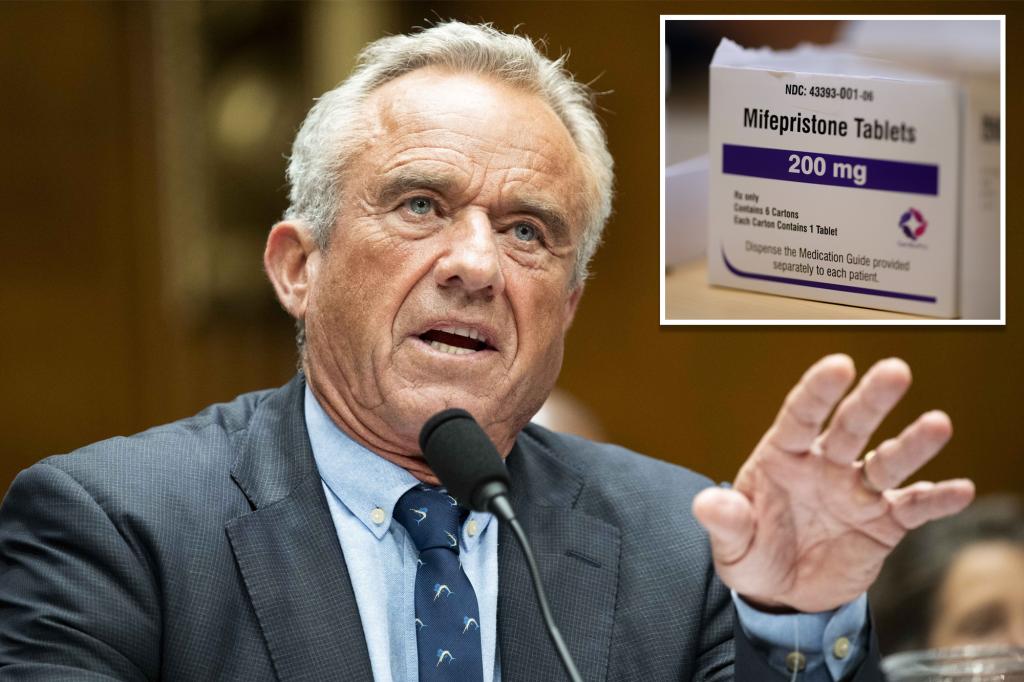RFK Jr. Calls for Comprehensive Review of Chemical Abortion Pill Regulations
In a significant policy shift, U.S. Department of Health and Human Services (HHS) Secretary Robert F. Kennedy Jr. announced a sweeping review of chemical abortion pill regulations this week. The move, which comes amid escalating national debates over reproductive rights and medication safety, could reshape access to mifepristone and misoprostol—the two-drug regimen accounting for over half of U.S. abortions in 2023. The review will examine prescribing protocols, distribution channels, and post-market safety data through an interagency task force.
Mounting Pressure for Regulatory Scrutiny
The decision follows a year of legal whiplash surrounding mifepristone, including a since-stayed 2023 Texas court ruling that sought to revoke its FDA approval. “We’re seeing troubling gaps in adverse event reporting and telehealth oversight,” Kennedy stated during a press briefing. “This review will follow the science—not politics—to ensure patient safety aligns with medical innovation.”
Recent CDC data reveals chemical abortions rose to 56% of all U.S. abortions in 2023, up from 44% in 2020. While the FDA reports 5.6 million safe uses since mifepristone’s 2000 approval, anti-abortion groups cite disputed studies linking the drug to increased emergency room visits. “The current REMS [Risk Evaluation and Mitigation Strategy] program is dangerously lax,” argued Dr. Christina Francis of the American Association of Pro-Life Obstetricians.
Balancing Access and Safety Concerns
Reproductive health advocates warn against politicized restrictions. “Mifepristone has safer outcomes than Tylenol or Viagra,” noted Dr. Jamila Perritt of Physicians for Reproductive Health. “This review must not become a backdoor ban through bureaucratic hurdles.” Key points under examination include:
- Current FDA protocols allowing mail-order prescriptions
- Pharmacist certification requirements in 18 states
- Reporting systems for complications
A 2022 Nature Medicine study of 14,000 telehealth abortions found 99.8% effectiveness with 0.25% major complications—rates comparable to in-clinic care. However, a conflicting 2023 analysis by the Charlotte Lozier Institute claimed a 35% higher complication risk than surgical abortions.
Legal and Political Ramifications
The review coincides with 14 states implementing near-total abortion bans post-Dobbs, creating a patchwork of access. “This could either standardize care or further fragment it,” said legal scholar Greer Donley, noting pending Supreme Court cases challenging FDA authority. The Biden administration recently expanded protections for out-of-state abortion seekers, signaling continued federal-state tensions.
Pharmaceutical manufacturers have also entered the fray. GenBioPro, a mifepristone producer, filed suit in May 2023 against West Virginia’s ban, arguing FDA approval preempts state restrictions. “You can’t have 50 different safety standards for an FDA-approved drug,” said company attorney Skye Perryman.
What Comes Next in the Regulatory Review
The HHS task force will convene medical experts, patient advocates, and industry representatives through 2024, with preliminary findings expected by Q2. Potential outcomes range from adjusted labeling to new provider training mandates. Meanwhile, telehealth platforms like Aid Access report surging demand, with 40,000 monthly consultations—triple 2021 levels.
As the nation watches, the review’s implications extend beyond reproductive health. “This tests whether evidence-based medicine can prevail in polarized times,” observed Johns Hopkins bioethicist Dr. Ezekiel Emanuel. With abortion rights poised to dominate the 2024 elections, the HHS decision may redefine the battlefield.
Call to Action: Stay informed on evolving reproductive health policies by subscribing to our healthcare policy newsletter for weekly updates and expert analysis.
See more WebMD Network



